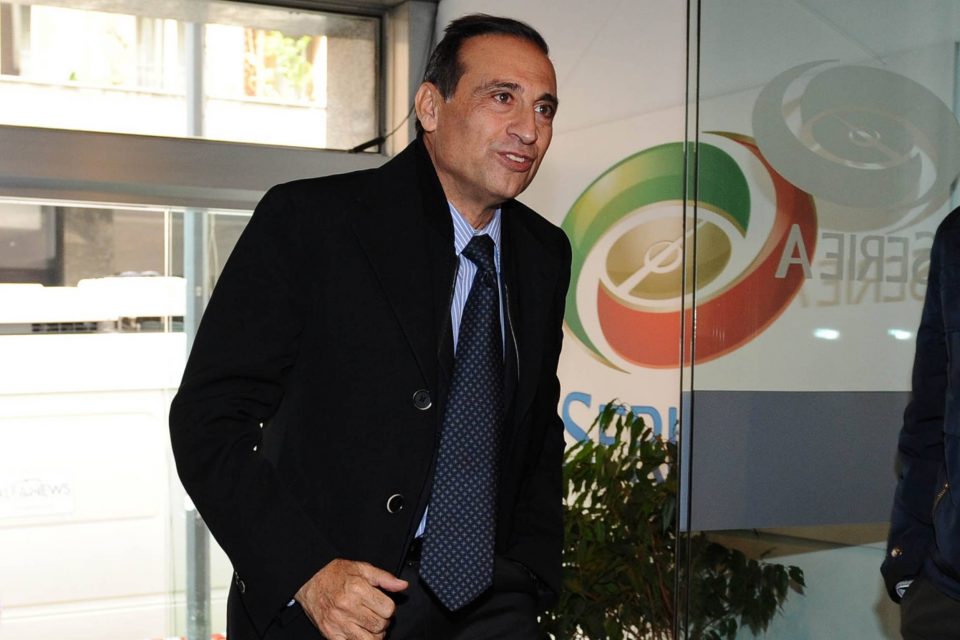Former Inter Milan CEO Ernesto Paolillo expects that Oaktree Capital will sell the Nerazzurri rather than Suning.
Speaking to Italian journalist Gianluca Rossi, via FCInter1908, Paolillo suggested that control of Inter will pass into the hands of Oaktree before a sale of the club takes place rather than it being sold by current owners Suning.
Paolillo believes that regardless of the Champions League final, Suning cannot retain club of Inter.
The key factor, for the former CEO, is the amount of debt at the club.
Moreover, Paolillo believes that there is a good chance that Suning will in fact simply see control of the club pass into the hands of Oaktree. This is because, if Suning cannot pay back their loan to the US-fund before the due date, then Oaktree would take over.
Paolillo: Inter Milan Will Be Taken Over By Oaktree From Suning
“Obviously I don’t know the current internal dynamics,” Paolillo said. “Whether negotiations are currently underway or not.”
“But I can do the math easily, as someone with financial experience,” he continued. “Inter’s debt is enormous, and it’s not sustainable to pay back debt at the interest rates Inter are currently paying.”
“It would mean adding deficit onto deficit,” Paolillo noted.
“Covering the debt would become extremely onerous.”
“I’m convinced that if Zhang cannot export capital, as seems to be the case, and cannot cover this debt through other resources, he will be unable to do anything other than give up the shares of the club promised to Oaktree,” Paolillo predicted.
“I don’t think anyone will want to buy the club from him with the current debt.”
“At signs point to the future of the club being in the hands of Oaktree, not Zhang,” Paolillo suggested.
The former CEO observed that “Inter are not a company listed on the stock exchange, so they don’t have many constraints. They don’t even have to notify when negotiations start.”
“They only have the obligation to report on a completed sale, not one that’s in progress.”
“But if there were a negotiation, there would still be plenty of signs of it, like the parties doing their due diligence and exchanges of papers,” he suggested.
“These signs don’t seem to exist.”





